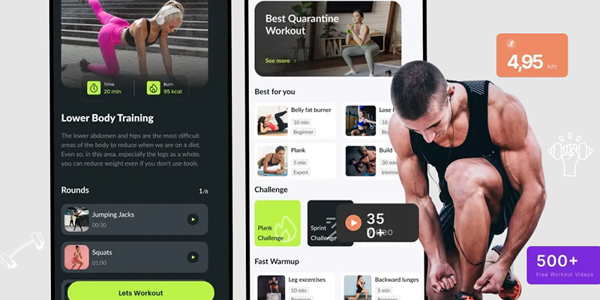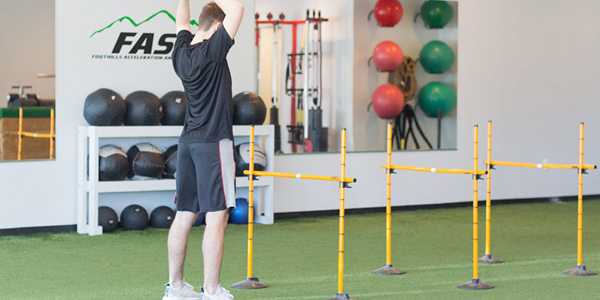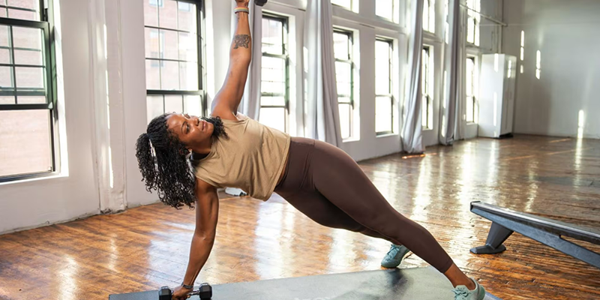How To Start A Fitness Routine
A fitness routine can be challenging, especially if you do not exercise regularly. However, creating an enjoyable fitness plan should not be complicated. With the right attitude and planning, anyone can develop a routine that accomplishes their goals.
Your Goals In Mind
It is essential to know your objectives before starting any fitness regimen. You should focus on areas like muscle gain, weight loss, or improving general health. Knowing your goals enables you to focus on the proper workout. For example, people who want to lose weight may focus on cardio workouts like running or cycling, while someone trying to build strength may focus on weightlifting.

Motivational goals can also be set. Setting challenging goals can lower your motivation because you tend to feel defeated once you set those goals and cannot achieve them. With every step you take towards your larger aspirations, you should feel like you have accomplished something motivating, keeping you focused and improving your self-esteem.
Constructing A Schedule
You can now draw up an elaborate workout plan with your aims already set. A good plan includes cardiovascular exercise, strength training, and some form of flexibility work. Cardio helps strengthen the heart and burn calories, while strength training helps build muscle mass and increase metabolism. Last but not least, mobility exercises like Yoga or stretching improve the range of movement and decrease the chances of injuries.
Beginners are suggested to start with moderate activity two to three times a week. As their bodies adjust, they should increase the frequency and intensity of their workouts. Remember, establishing long-term habits requires dedication. Daily short walks will aid in improving their fitness levels.
Picking Activities That You Like
Having fun is one of the most important aspects of maintaining a consistent fitness routine. If exercising feels like a chore, you will likely not stick to it in the long run. Keep trying new forms of exercise until you find those that work for you. Whether dancing, swimming, playing a sport, or hiking, there is something for everyone.
Additionally, social aspects can be integrated into your workouts. Exercising with friends and in group classes is fun and provides workout partners who encourage and hold you accountable.
Nutrition & Hydration: The Right Fit Fueling Your Body
Without discussing nutrition and hydration, no discussion of starting a fitness regime is complete. Fuelling your body the right way maximizes performance during workouts and helps recovery afterwards. Strive for a well-balanced diet with lean protein, whole grains, fruits, vegetables, and healthy fats. Moreover, water should be consumed throughout the day to remain adequately hydrated.
Even though supplements can be beneficial under the right circumstances, they should never substitute for proper meals. If you suffer from a medical condition or take medications regularly, consult with healthcare professionals before making any changes to your regimen.
Progress Tracking And Adapting Changes When Needed
Monitoring your aims and goals serves numerous purposes. It allows you to edit your plans to reflect your ongoing efforts, changes, and needs. Features like fitness goals and milestones can help you adjust as you go along. Many apps are available today designed to track an individual's fitness journey, from step counting to weight lifting; many can sync with smart devices instantaneously.

It's essential to remember that personal checks like clothes fit, energy levels, and sleep patterns matter a lot to achieve target milestones. Try to be open-minded about how you strategize and constantly review your plans to ensure they reflect the changes you set for yourself.
Dealing With Common Issues
People are bound to have personal issues, and this journey is no different from each individual's life. Some common problems are poor exercise knowledge, external perception of exercising on social media, lack of available time, and traumatic past experiences. Unpacking these issues allows a person to work past many barriers that exist.
One efficient starting point for expanding on these is how priorities can make space for new activities. As mentioned, setting aside specific time for working out helps ensure follow-through. Newcomers can also use personal trainers for added support. Lastly, goals must be adjusted depending on personal benchmarks to guarantee personal progress.
Always remember that motivation shifts and should not be expected to remain constant. Setting goals and trying new ways to achieve them is critical to keeping performance consistent. Aim for low-hanging fruit and celebrate those achievements, encouraging a more positive outlook.
In addition, imagining the desired finishing results greatly aids persistence. Mentally achieving your goals, such as slipping into your favourite jeans or completing your first marathon, strengthens determination when trying to overcome the hurdles you inevitably face on your journey!
Seeking Assistance With Fitness Journey
When starting a fitness journey, changing one's physical appearance isn't the only goal; adopting a healthier lifestyle goes hand in hand with improving all aspects of life. Everyone should wear that pair of sneakers, take that first step, and enjoy the adventure with an upbeat spirit and a healthy mindset.




